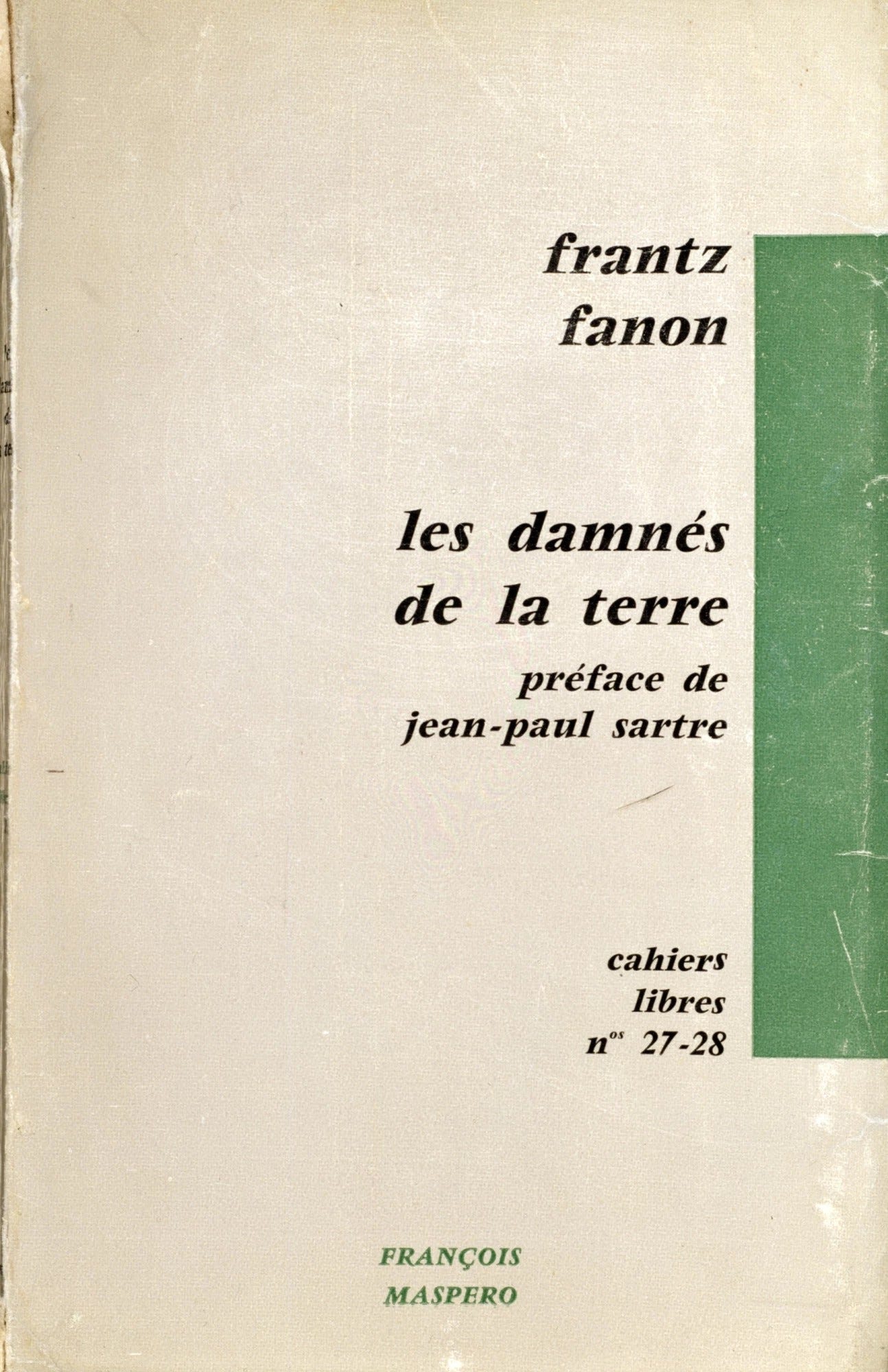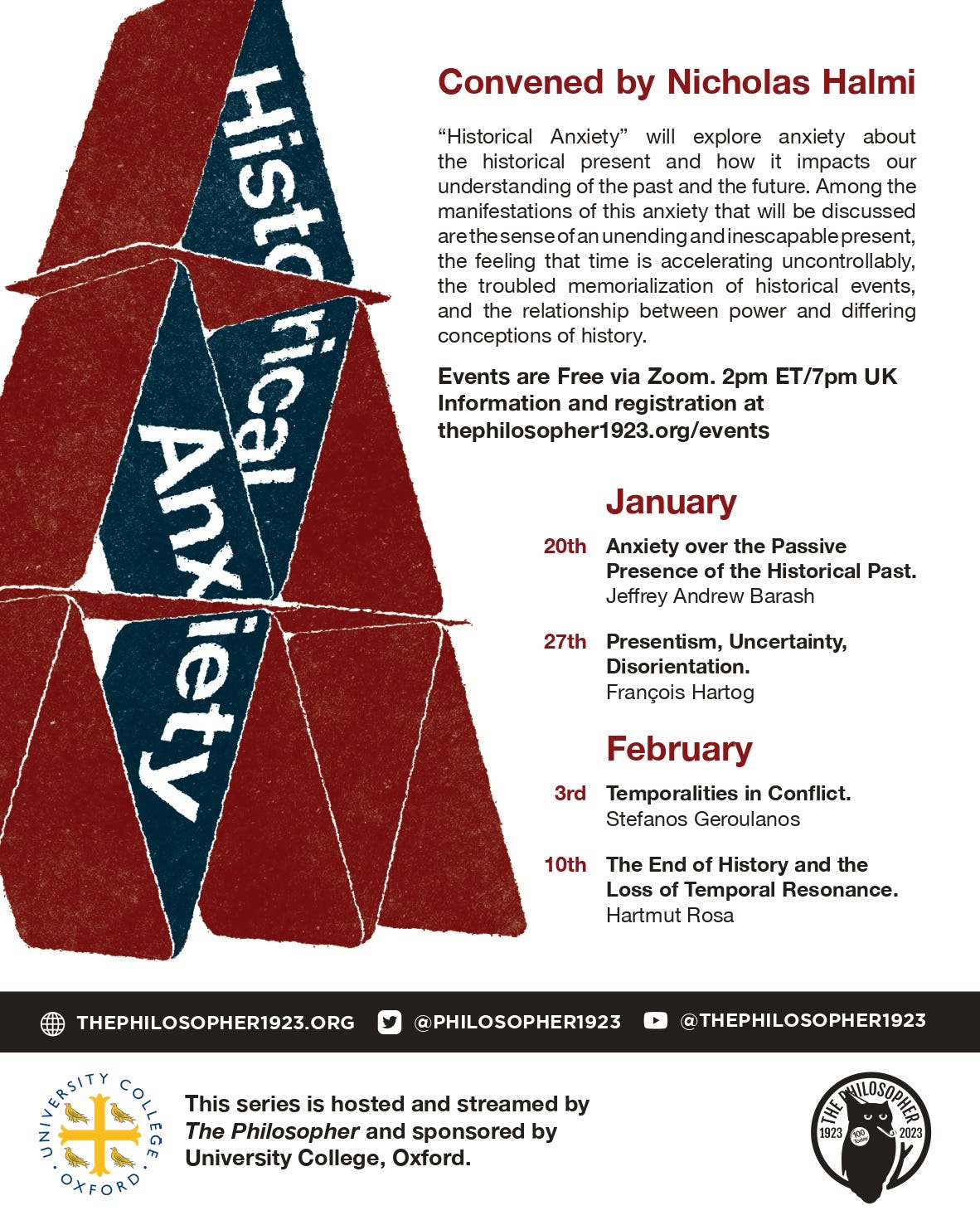Frantz Fanon’s "The Wretched of the Earth"; Historical Anxiety
An interview with Lewis R. Gordon; an event with Jeffrey Andrew Barash
Dear all,
One of the exciting new features of our events series is the rise of mini-series within the main series. This started with Brad Evans’ “A Century of Violence” back in early 2023, and the latest series, Nicholas Halmi’s “Historical Anxiety”, is beginning tomorrow with Jeffrey Andrew Barash as his guest. This week, we have published the edited transcript of Brad’s conversation with Lewis R. Gordon on Frantz Fanon’s The Wretched of the Earth. More on all of this below.
Your Sunday Read
“Frantz Fanon’s The Wretched of the Earth”
a conversation with Lewis R. Gordon
Frantz Fanon’s The Wretched of the Earth (Les Damnés de la Terre, 1961) remains one of the most influential and provocative books on violence ever written. At its heart, The Wretched of the Earth is a meditation on the psychic life of violence and its lived and generational consequences, which asks uncomfortable questions of us all. This conversation between the renowned Fanonian scholar Lewis R. Gordon and Brad Evans reflects upon the impact and continued relevance of Fanon’s book, attending to the dialectical logic of colonialism, the question of revolutionary violence, and the poetry that permeates Fanon’s unique thinking, whilst asking why Fanon’s provocation “who actually constitutes the wretched of the earth?” remains as important as ever. You can read the conversation here.
Monday Event: 11am PT/2pm ET/7pm UK/8pm CET
“Anxiety over the Passive Presence of the Historical Past”
Jeffrey Andrew Barash in conversation with Nicholas Halmi
We live in a time of acute historical anxiety. This anxiety manifests itself in various forms: ambivalence about our relationship to the past, a disorientating sense of ever-accelerating change, the fear of an unpredictable and uncontrollable future. One form in which historical anxiety manifests itself is an ambivalent relationship to the past. For the past may possess a resonance that the present does not wish to acknowledge or cannot fully control.
In tomorrow’s event, Jeffrey Andrew Barash will discuss how historical investigation can reactivate, in unanticipated ways, deep-seated, symbolically charged attitudes, assumptions, and myths from the past. His primary example will be representations and investigations of the American Civil War and Reconstruction era – a timely issue as symbols of the Confederacy are being reclaimed for contemporary political ends. You can find out more and register here.
Event Recording
For those of you who missed, or wish to re-watch, Monday’s conversation between J. McKenzie Alexander and Alexis Papazoglou on “The Open Society as an Enemy”, the event recording is here:
Ending
The Philosopher is unfunded and relies on your support to keep doing the work we do. Through becoming a supporter via Patreon, you can get all our print/digital issues sent to you, enjoy priority access and discounted rates for our groups/classes, join philosophical discussions with our editorial team, and more. The income we generate via Patreon helps us to keep our events series free and to pay our contributors. You can find out more and become a member here.
Wishing you all a lovely Sunday, wherever you are.
Anthony Morgan
Managing Editor





